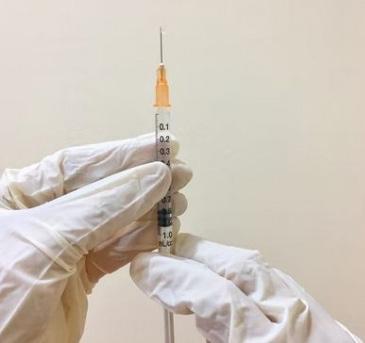
2 minute read
Global Polio Eradication Initiative team reviews vaccination strategies in Pakistan
Islamabad, July 23 (IANS) A high-level delegation of the Global Polio Eradication Initiative (GPEI) has concluded an official visit to Pakistan to review the strategies in place for vaccinating children that remain unreached in the polio-endemic districts of the country's northwest Khyber Pakhtunkhwa (KP) province, Pakistani Health Ministry said.
New Delhi, July 24 (IANS)
Advertisement
About 50 per cent of healthcare industry professionals with prior experience in artificial intelligence (AI) have strongly endorsed its use in clinical practice and administrative tasks, according to a report on Monday.

The report by GlobalData, a leading data and analytics company, showed that AI is increasingly becoming embedded in the provision of healthcare.
The report revealed that among different activities, diagnostics support and treatment decisions support are the two most popular cases with the use of AI tools.
“Some practices such as oncology have already been using AI to assist their clinical works like risk prediction and disease diagnosis.
Of course, while AI can help with diagnosis, treatment decisions and eventually provide more effective patient care, scientific validation is needed to verify results,” said Elton Kwok, Market Research Manager in Pharma at GlobalData.
The report, based on a survey of 426 healthcare industry professionals between March -June, offers insights into the current utilisation and prospects of AI in eight major pharmaceutical markets -- the US, France, Germany, Italy, Spain, the UK, Japan, and China. In these countries, the majority of physicians expressed great comfort in using AI for automating administrative tasks.
“This sentiment underscores the growing acceptance of AI as a valuable tool in streamlining healthcare operations and suggests a shift towards leveraging its potential for optimising administrative efficiencies in medical practices across these countries," Kwok said.
Importantly, China has emerged as a prominent player in the global healthcare landscape in embracing AI, reflecting its commitment to advancing healthcare accessibility and quality, and positioning the country as a key player in the ongoing digital revolution within the healthcare industry.
“AI's utilisation in drug development, encompassing target identification and drug repurposing, has yielded promising outcomes, fostering increased confidence in AI tools," Kwok said.

With AI's rapid evolution and the growing need to enhance healthcare delivery, the report foresees a gradual shift towards more extensive AI adoption in clinical practices, he noted.
During the four-day visit, the delegates visited the National and Provincial Emergency Operations Centers and attended a meeting of the National Task Force on Polio Eradication, while holding separate meetings with the top officials where they discussed the impact of political transition on eradication efforts in the affected areas, the Ministry said on Saturday in a statement.
New York, July 24 (IANS) Foods that pack the greatest prebiotic punch to keep your gut healthy are dandelion greens, Jerusalem artichokes, garlic, leeks, and onions, suggests a new study. The study comes amidst growing evidence that consuming prebiotics -- certain types of fibre often found in plants that stimulate beneficial bacteria in your gut -- can help to maintain a healthy gut microbiome. Studies have linked higher prebiotic intake with improved blood glucose regulation, better absorption of minerals like calcium, and markers of improved digestive and immune function.
Prebiotics, which can be thought of as food for the microbiome, are different from probiotics, which contain live microorganisms. Both can potentially benefit microbiome health, but they work in different ways.
"Eating prebiotic dense foods has been indicated by previous research to benefit health," said Cassandra Boyd, student at San Jose State University in the US.
"Eating in a way to promote microbiome wellness while eating more fibre may be more attainable and accessible than you think," she added.
Although most dietary guidelines do not currently specify a recommended daily allowance for prebiotics, the International Scientific Association for Probiotics and Prebiotics -- a non-profit scientific organisation that established the currently held definition of prebiotics -recommends an intake of 5 grams per day.
For the study, researchers used previously published scientific findings to analyse the prebiotic content of 8,690 foods.
About 37 per cent of the foods in the database were found to contain prebiotics.
Dandelion greens, Jerusalem artichoke, garlic, leeks, and onions had the greatest amounts, ranging from about 100-240 milligrams of prebiotics per gram of food (mg/g).








